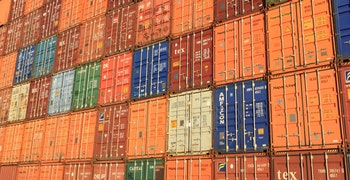
Automate end-to-end 1099 and W-9 compliance with new Avalara APIs
Managing 1099 and W-9 compliance is a time-consuming, error-prone process for many businesses. Manual data entry, outdated systems, and disconnected workflows make it difficult to collect and validate tax information, meet filing deadlines, and ensure accurate submissions. Avalara 1099 and W-9 APIs are built to solve these challenges by embedding automation directly into your existing platforms and processes — streamlining compliance from start to finish.
Designed for high-volume vendor and payee environments
These APIs are especially valuable for organizations that process recurring 1099 filings or handle large volumes of vendor data. Specifically, ecommerce retailers, online marketplaces, and finance or procurement teams with expansive accounts payable operations can benefit greatly from our APIs. Enterprise businesses that rely on ERP, accounting, or procurement systems can now manage compliance from within the systems they already use, without jumping between tools, relying on spreadsheets, or turning to third-party service providers.
Key benefits of Avalara 1099 and W-9 APIs
Integrating Avalara APIs offers several clear advantages that reduce friction in compliance workflows, lower the risk of costly errors, and free up internal resources.
1. End-to-end automation
Avalara APIs enable you to collect digital W-9 forms, validate taxpayer identification numbers (TINs), verify addresses, prepare and file 1099 forms with federal and state tax agencies, and send recipient copies — all through a single integrated platform. The full filing life cycle can now be automated with minimal manual intervention.
2. Better data accuracy
Errors introduced during manual entry and spreadsheet uploads can create costly penalties and slow down filings. Avalara automation and validation capabilities help ensure data is correctly formatted, consistent, and aligned with IRS requirements, reducing the risk of mistakes that can lead to audits or rejections.
3. No FIRE account required
Filing information returns with the IRS typically requires businesses to register for a Filing Information Returns Electronically (FIRE) account. With Avalara, you don’t need to manage this additional step — the platform handles the filing process directly with the IRS and applicable state agencies on your behalf.
4. Efficiency at scale
Consolidating compliance tasks into a single API-driven workflow streamlines the entire process, saving hours across finance, legal, and operations teams. Avalara solutions scale with your business, whether you process a few dozen 1099s annually or tens of thousands monthly.
5. API-first flexibility
Avalara 1099 and W-9 APIs are designed to be flexible and developer-friendly. You can embed tax compliance capabilities into your ERP, accounting system, ecommerce system, or procurement workflows to build a custom compliance engine tailored to your business needs.
How to get started
Getting started with Avalara 1099 and W-9 APIs is simple. Avalara provides clear API documentation, implementation guides, and onboarding support to help your team integrate quickly. Whether you have in-house developers or use a third-party systems integrator, Avalara helps ensure your transition to automated compliance is smooth and fully supported.
To start, connect with an Avalara solutions expert who can help assess your current workflows and guide your team through the integration steps.
Frequently asked questions
1. Do I need technical expertise to implement Avalara APIs?
You’ll need some development support to implement the APIs, but Avalara documentation is built to make the process as clear and simple as possible. Our onboarding teams are also available to assist with setup.
2. What types of systems can the APIs integrate with?
Avalara 1099 and W-9 APIs are designed to integrate with ERP systems, accounting software, ecommerce platforms, procurement tools, and other systems where payee or vendor data lives. Common integrations include NetSuite, SAP, Oracle, and QuickBooks, as well as custom-built environments.
3. Is the integration secure?
Yes. Avalara adheres to strict data protection protocols, including military grade encryption in transit and at rest, role-based access controls, and compliance with IRS data handling requirements. Your vendor and taxpayer data is safe within our systems.
4. What if I only file 1099s once a year?
Even if you only file once annually, the APIs can still help you reduce the time and risk associated with manual processes. Automation helps keep your data accurate year-round and ready for timely filing during tax season.
5. How do the new APIs differ from existing Avalara 1099 and W-9 capabilities?
Avalara has long provided a stand-alone 1099/W-9 portal. The new APIs allow businesses to bring that same functionality into their own systems — delivering a seamless, always-on compliance experience without requiring users to sign in to a separate interface.
A more connected approach to compliance
As businesses grow and regulatory demands increase, integrating compliance directly into your systems becomes more than just a convenience — it’s a necessity. Avalara 1099 and W-9 APIs help businesses automate tax reporting and manage vendor compliance more effectively, reducing risk and freeing teams to focus on strategic work.

Avalara Tax Changes 2026 is here
The 10th edition of our annual report engagingly breaks down key policies related to sales tax, tariffs, and VAT.
Stay up to date
Sign up for our free newsletter and stay up to date with the latest tax news.















